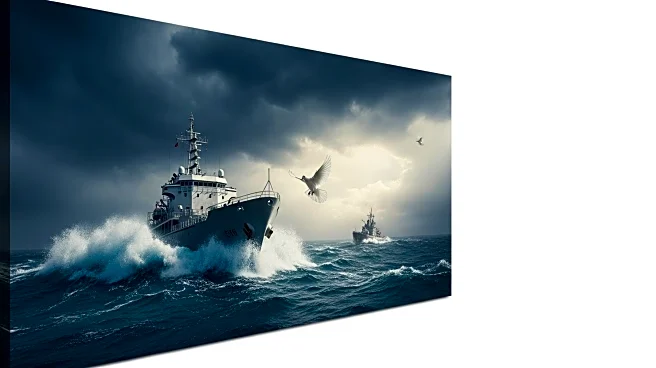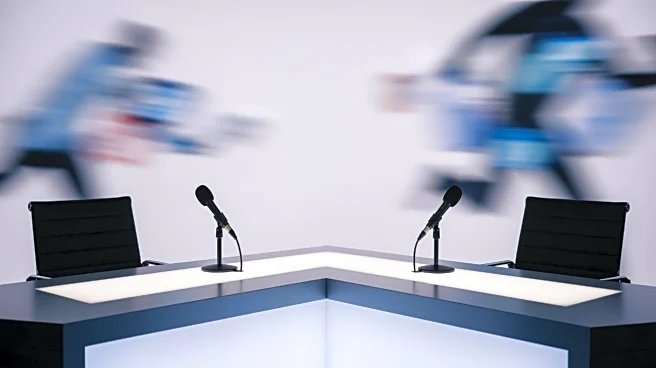What is the story about?
What's Happening?
The Israeli military has intercepted a fleet of aid ships, known as the Global Sumud Flotilla (GSF), which was en route to Gaza. The flotilla, comprising over 500 participants from various countries, aimed to deliver essential supplies such as food, water, and medicine to Gaza, challenging Israel's 18-year maritime blockade. Among those detained was Swedish climate activist Greta Thunberg. The interception occurred approximately 70 nautical miles from Gaza, with reports of aggressive tactics used by Israeli forces, including ramming and water cannon attacks on the vessels. Israel's foreign ministry stated that the flotilla was warned about entering an active combat zone and violating a lawful naval blockade. The ministry also claimed that the activists were more interested in provocation than aid delivery.
Why It's Important?
This incident highlights the ongoing tensions surrounding the Israeli blockade of Gaza and the international efforts to challenge it. The interception has sparked global protests and condemnation, with significant backlash from countries like Italy, Turkey, and Colombia. The event underscores the humanitarian crisis in Gaza, where escalating conflict has led to severe shortages of essential supplies. The international community's response, including calls for the safety and release of the detained activists, reflects the broader geopolitical implications and the contentious nature of Israel's blockade policy. The situation also raises questions about the effectiveness and ethics of such blockades in conflict zones.
What's Next?
The international response to the interception is likely to intensify, with potential diplomatic repercussions for Israel. Countries involved in the flotilla may increase pressure on Israel through diplomatic channels or public protests. The incident could also influence future aid missions to Gaza, potentially leading to more coordinated international efforts to address the humanitarian needs in the region. Additionally, the situation may impact ongoing peace negotiations and proposals, as stakeholders reassess their strategies in light of the heightened tensions.
Beyond the Headlines
The interception of the flotilla raises ethical questions about the use of military force against humanitarian missions and the rights of activists to challenge blockades. It also highlights the complex legal and moral landscape of international aid delivery in conflict zones. The involvement of high-profile figures like Greta Thunberg brings additional media attention and public scrutiny, potentially influencing public opinion and policy decisions related to the Israeli-Palestinian conflict.
















